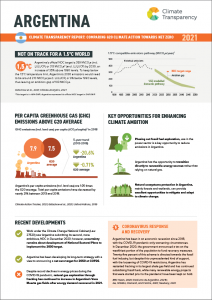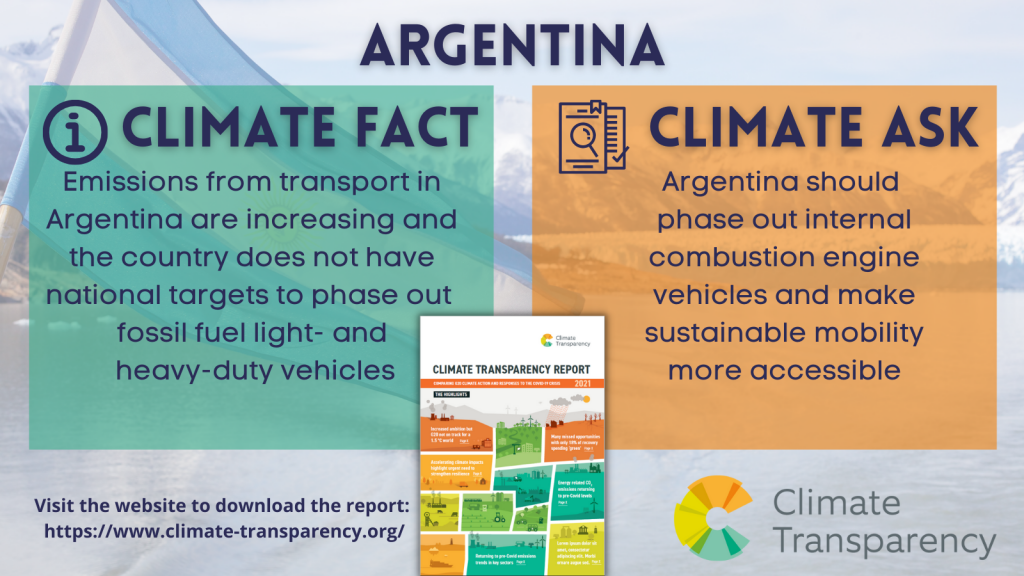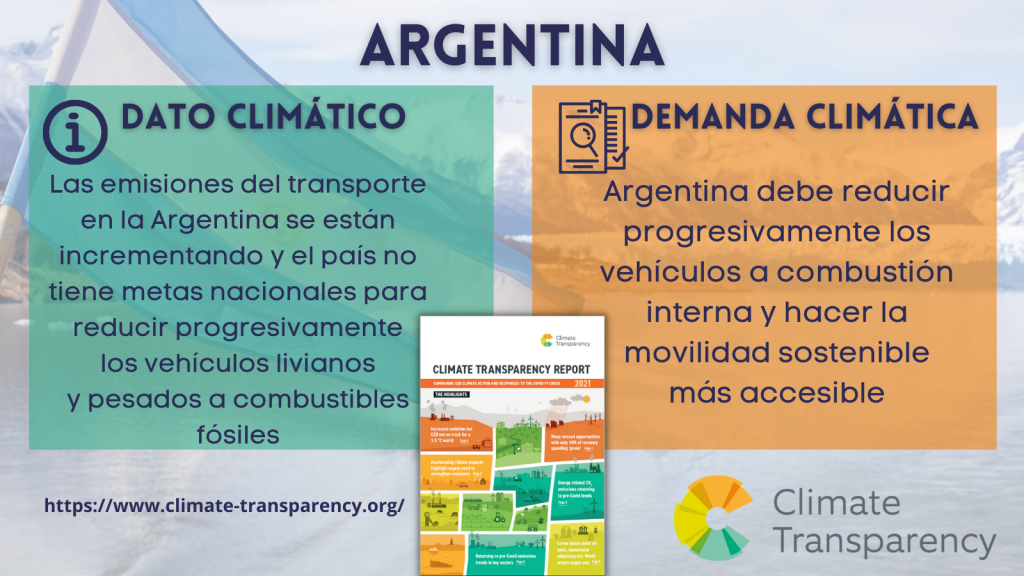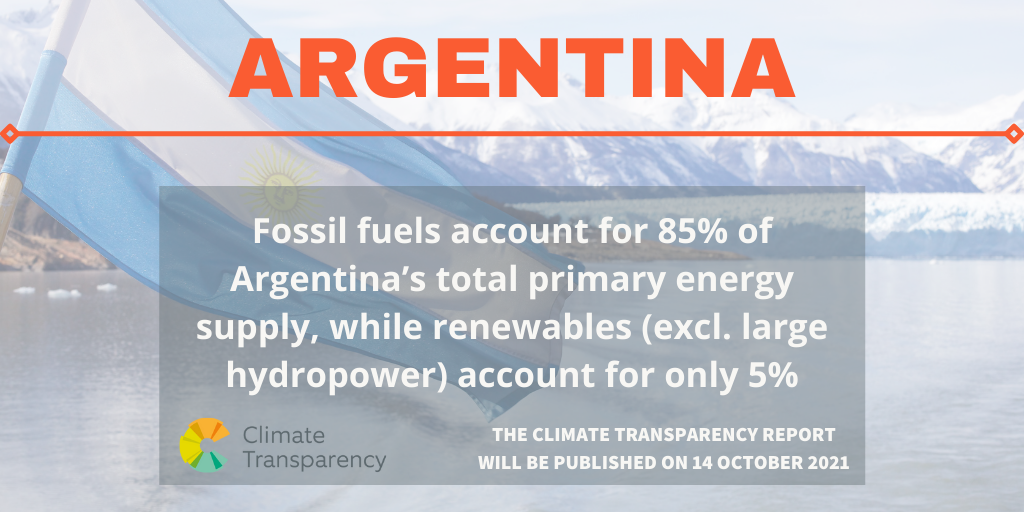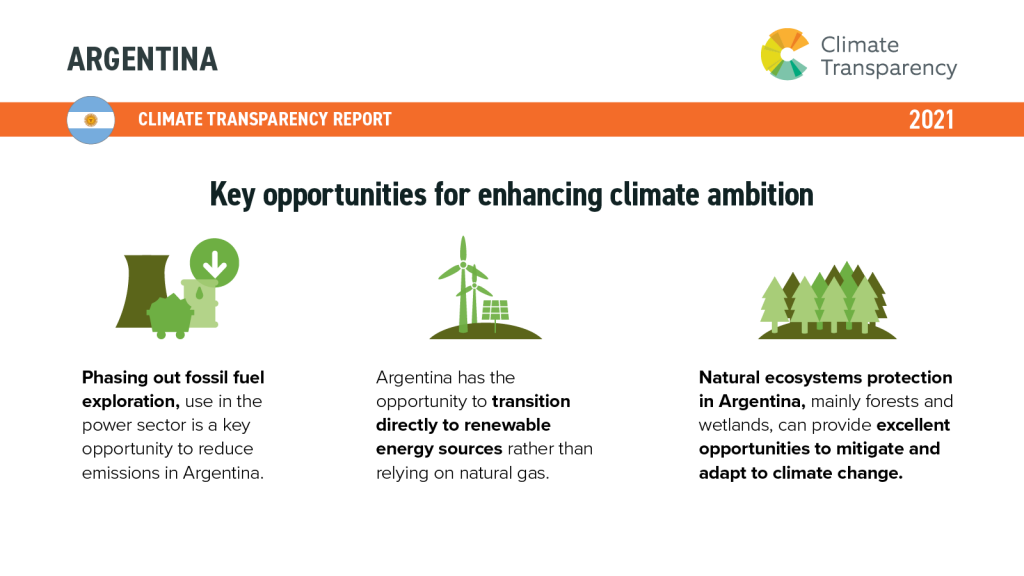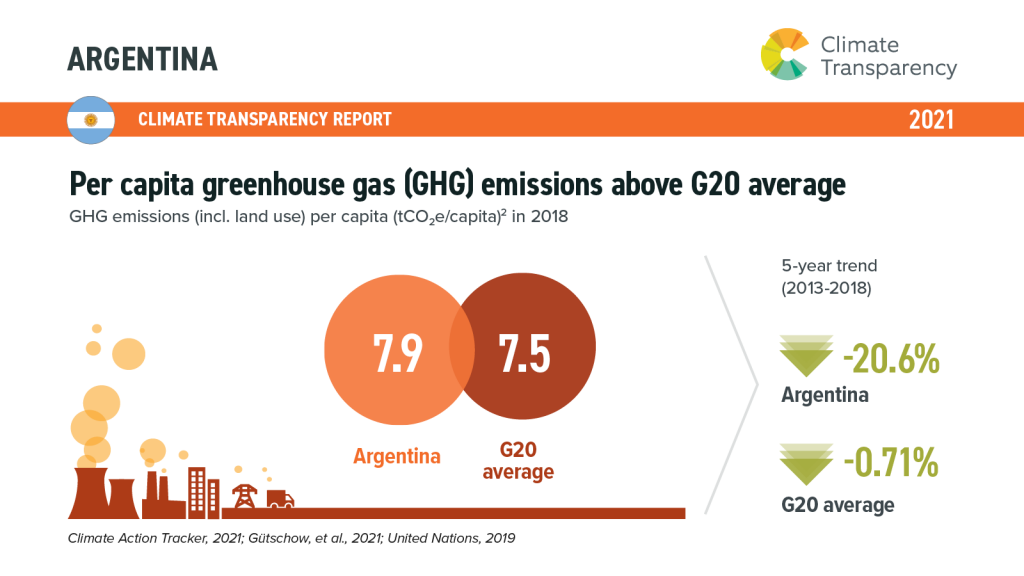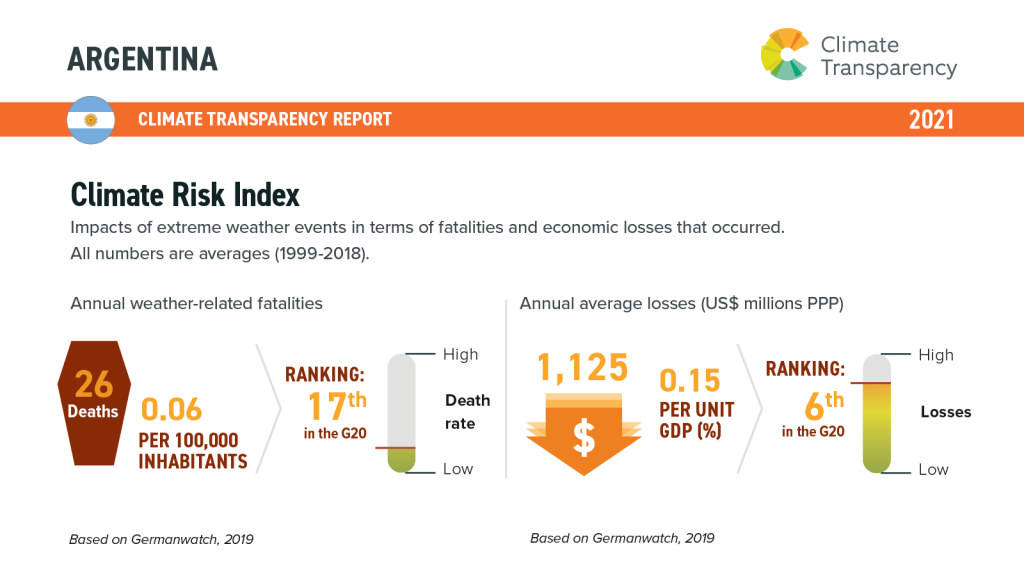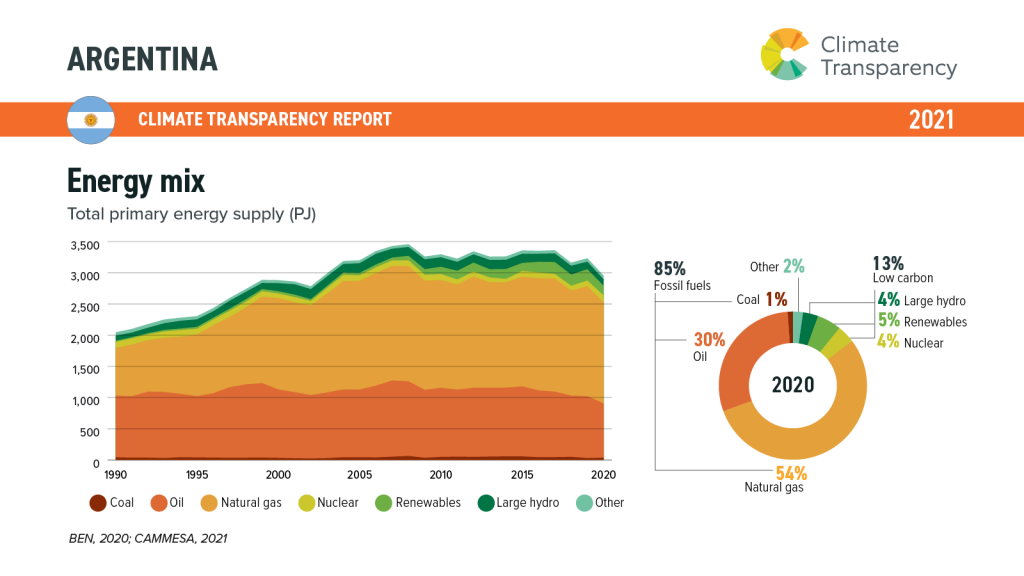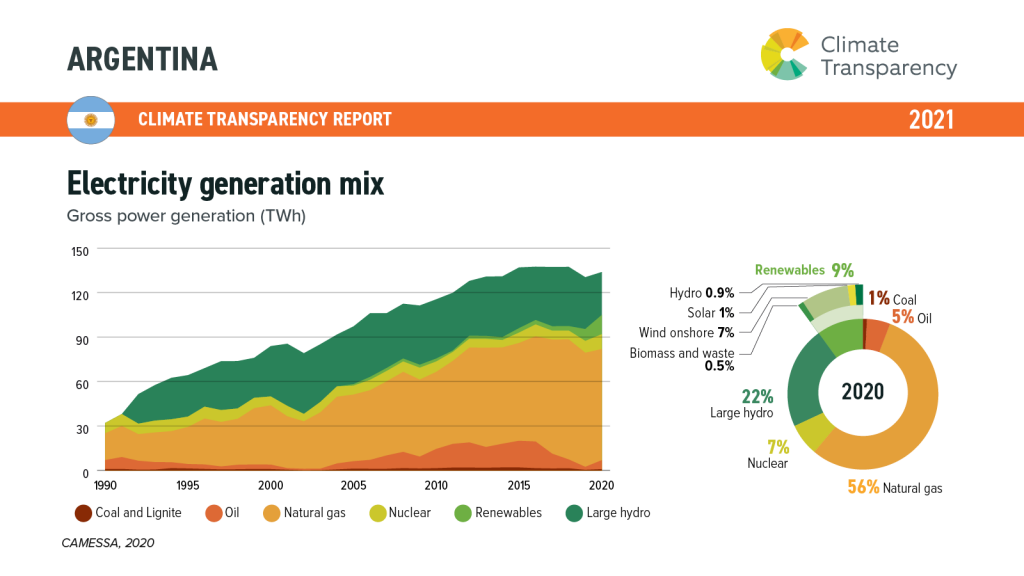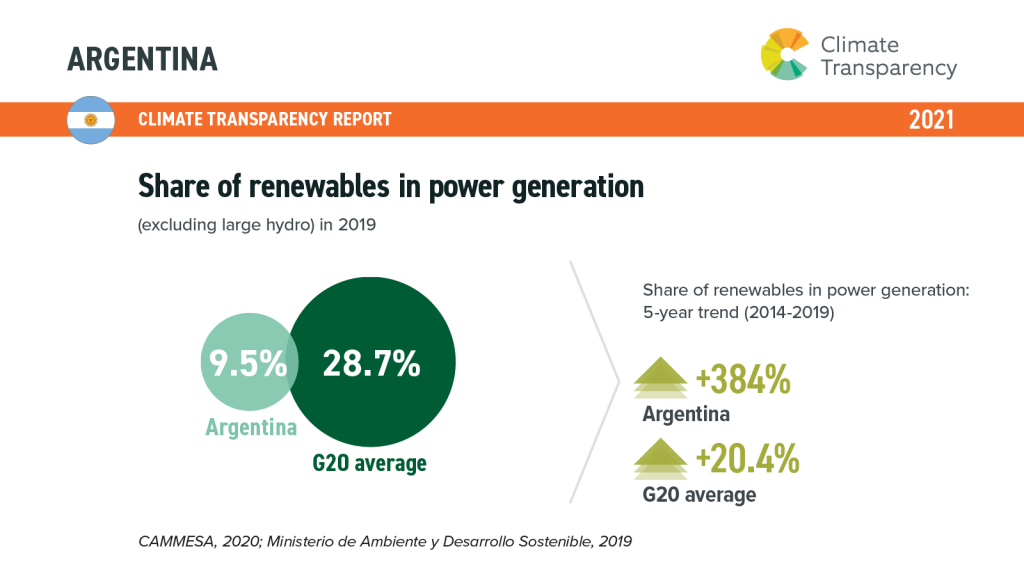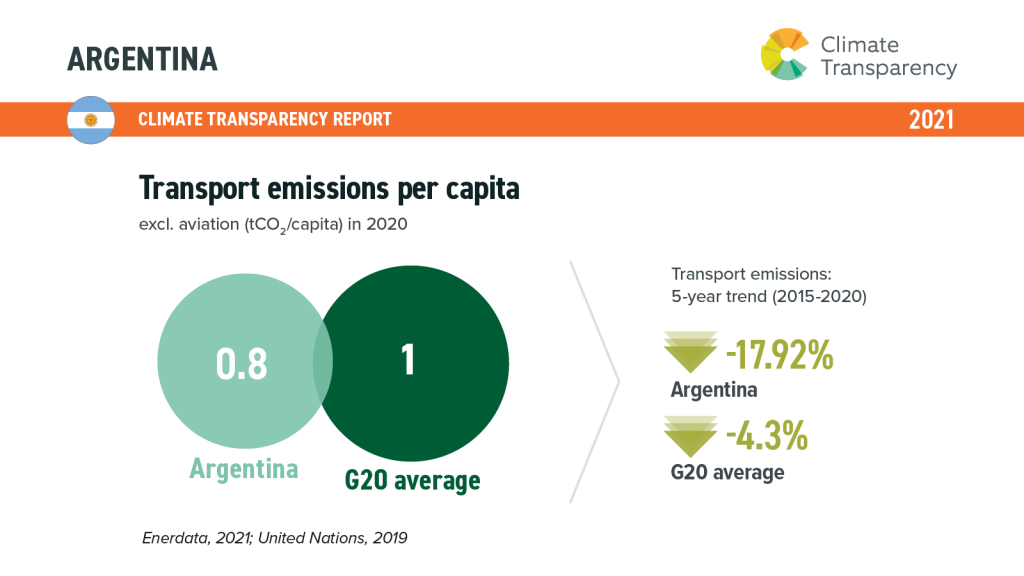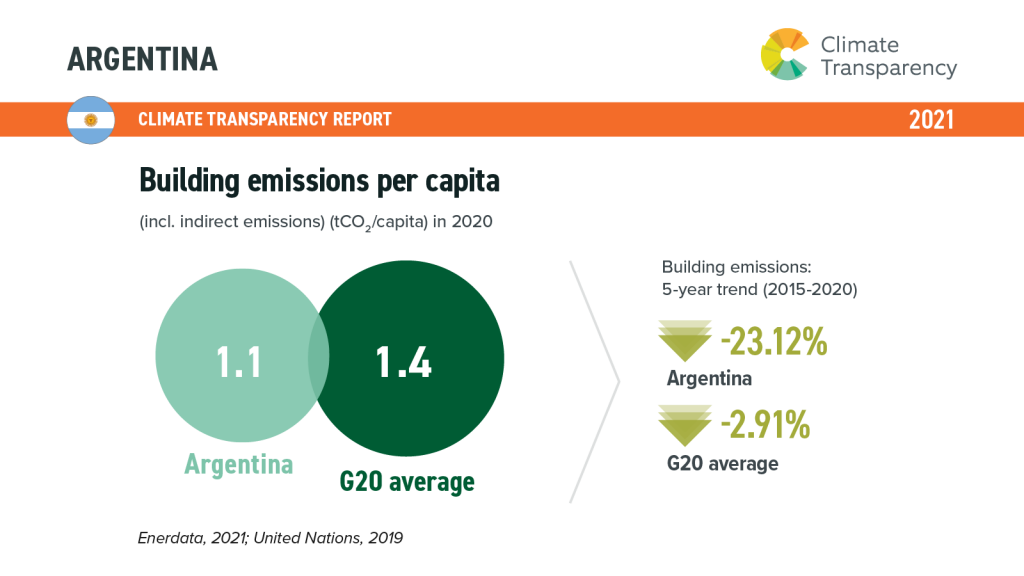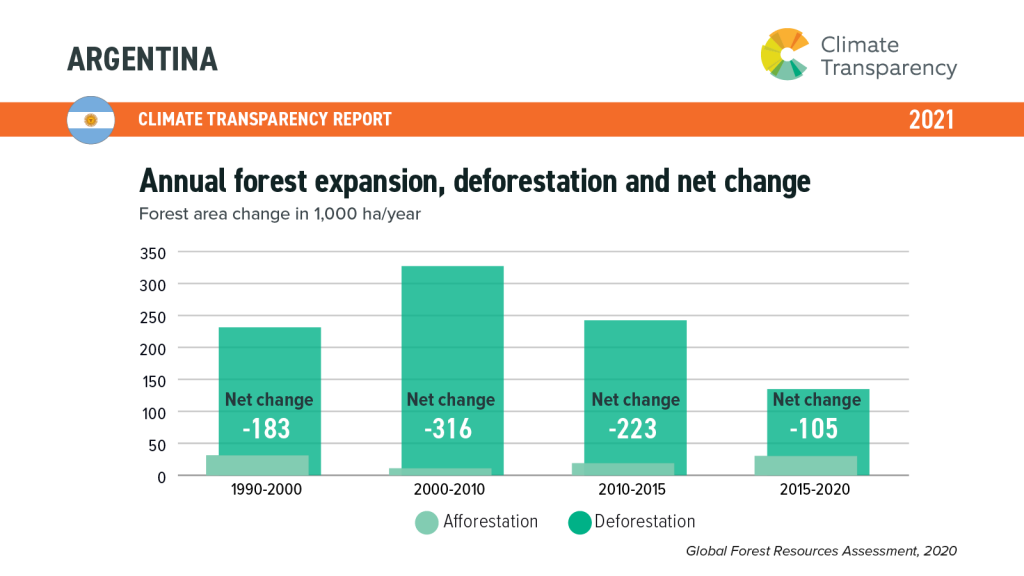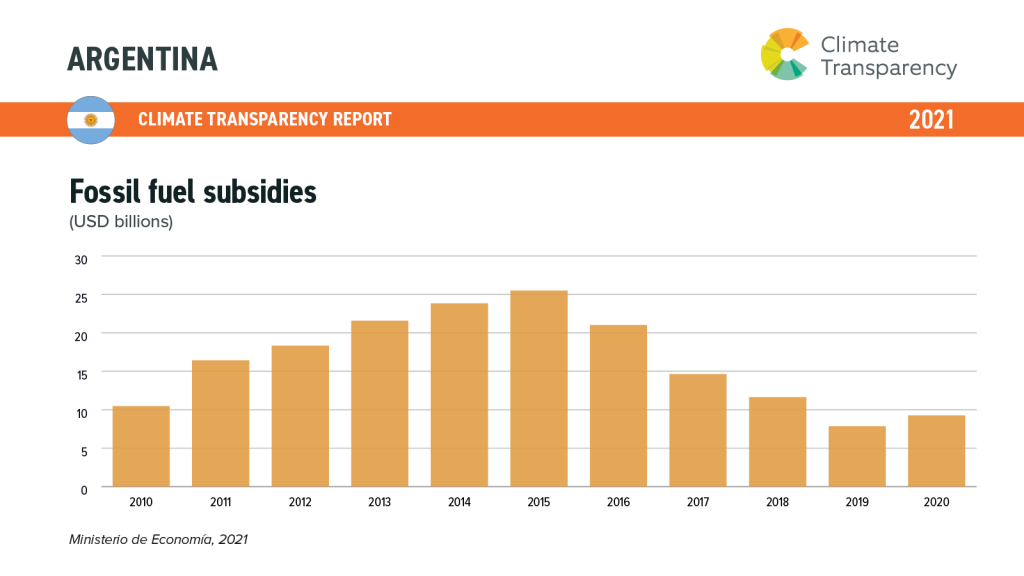On 14 October 2021 Fundación Ambiente y Recursos Naturales (FARN) presented the 2021 edition of the Climate Transparency Report and the Country Profile of Argentina. During the virtual event, main findings of the Climate Transparency Report 2021 were presented and discussed with the national focus.
Enrique Maurtua Konstantinidis, Senior Advisor on Climate Policy at FARN started the event with a brief overview about Climate Transparency and its yearly publication: The Climate Transparency Report and 20 country profiles. Referring to COP26 in Glasgow he remarked that “at the international level on climate action measures we see that there are commitments that are being raised and developed in line with the Paris Agreement, but in our territory we see that these measures and actions are not implemented.”
Afterwards, Daniela Keesler, Researcher at UNICEN and collaborator in the elaboration of the Climate Transparency Report 2021, commented on the most relevant conclusions of the new report, with a special focus on Argentina’s Country Profile: “In Argentina, per capita emissions have decreased by 20% in the last five years, but these emissions are still higher than the G20 average”. She added: “Our country has not yet presented a national adaptation plan for climate change, nor has it included post-pandemic recovery measures linked to sustainable development and green recovery.”
The webinar continued with the dialogue entitled: “What is happening with renewables in Argentina and what is needed for their development?”. “Renewable energies play a fundamental role, the president himself [Alberto Fernández] in his speech in April, at the Leaders’ Summit, spoke of a 30% use of renewables by 2030. Last year there was a record use of these energies, which was still at a relatively low level of 9%. According to the commitments by the end of 2021 it should be 16%, by 2025 20% and by 2030 30%. We see a lot of ideals, but in practice there is a huge contrast,” said Enrique Maurtua Konstantinidis.
In this line, Marcelo Álvarez remarked that “we are always fantastic at setting long-term goals, but in practice and in our day-to-day work we don’t do it. When we talk about a decentralised, clean, digital and intelligent matrix with renewable energies, everyone is in agreement for 2050, but when we want to start to implement it, we see that it is not happening.”
In the second part of the event, a round table debate was conducted. Moderated by Jazmín Rocco Predassi, from FARN’s Climate Policy Area, panelists and experts discussed medium and long-term goals in Argentina and Mexico. “If the world had emitted the same level of emissions that Mexico has, we would have been on a global trajectory beyond a 3°C increase in the Earth’s average temperature,” warned Jorge Villarreal of Iniciativa Climática de México. He said: “Our public policies are not aimed at meeting the NDC (Nationally Determined Contribution), let alone meeting the 1.5°C trajectory.”
Stefanía D’Annibali, an independent consultant specialising in transparency and climate negotiations, said that “the policies of the Paris Agreement require fundamental changes and cannot start in nine years’ time, they have to start now. Energy policies are long-term and must be taken seriously by all ministries and political parties. Also, a more active citizenship is needed to demand that international commitments are met”.
In the context of COP26 D’Anniball warned: “The COP is all about announcements, but we need to see the policies that will be implemented on the ground”. In this sense, Jazmín Rocco Predassi questioned: “Argentina is going to present its carbon neutrality project for 2050 at COP26, but how is it compatible with current policies, for example, the Fossil Fuels Promotion Law?” [Note: Argentina did not submit its LTS at COP26].
At the end of the webinar, Enrique Maurtua Konstantinidis took the floor again to give a clear message to all national and international authorities. “With politically correct speeches alone, we will not achieve carbon neutrality by 2050. It is urgent to move from words to deeds” he warned.
What does Argentina need to do to move from words to deeds?
The Climate Transparency Rreport 2021 finds three key opportunities to increase Argentina’s climate ambition:
- Phase out fossil fuel exploration and use in the energy sector to reduce emissions.
- Switch to an energy matrix from renewable sources and avoid the use of natural gas.
- Protect natural ecosystems, especially forests and wetlands, as they are critical for climate change mitigation and adaptation.
The Spanish versions of the Climate Transparency Report 2021 and the Argentina’s Country Profile will be published soon.



